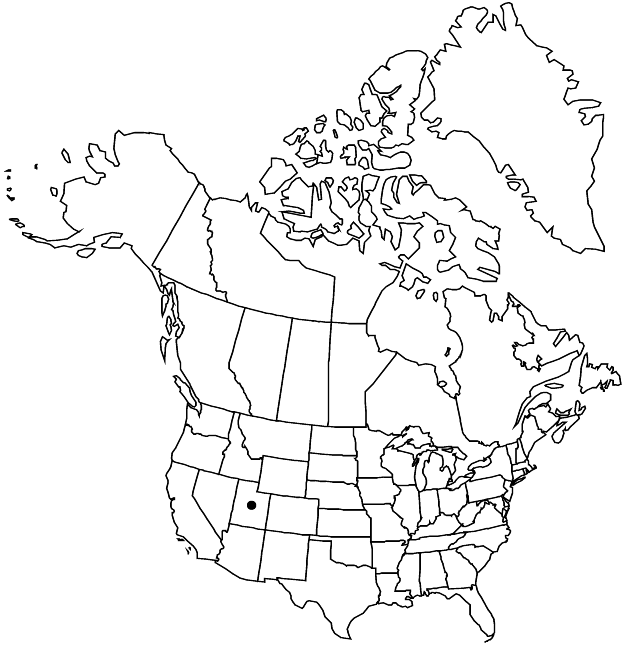Eriogonum aretioides
Leafl. W. Bot. 5: 154. 1949.
Herbs, matted, seemingly scapose, 0.01–0.05 × (0.5–)0.7–1.5 dm, pilose, greenish. Stems matted, with persistent leaf bases, up to 1/5 height of plant; caudex stems matted; aerial flowering stems absent. Leaves basal, fasciculate in terminal tufts, or cauline, 1 per node, sheathing entire length of stem; petiole absent; blade oblanceolate, 0.1–0.4(–0.6) × 0.09–0.12 cm, pilose on both surfaces, margins revolute. Inflorescences capitate, 0.4–0.8 cm; branches absent; bracts absent. Peduncles absent. Involucres 1 per node, campanulate, 2.5–3.5 × 3–4 mm, rigid, villous; teeth 4, erect to spreading, 1–1.5 mm. Flowers 2–2.5(–3) mm; perianth pale yellow to yellow, pilose; tepals connate proximal 1/3, monomorphic, narrowly ovate; stamens exserted, 1.5–2 mm; filaments glabrous. Achenes light brown, 1.8–2.3 mm, glabrous.
Phenology: Flowering May–Jul.
Habitat: Limestone gravelly soils, sagebrush communities, pinyon-juniper and subalpine conifer woodlands
Elevation: 2200-2600 m
Discussion
Of conservation concern.
Eriogonum aretioides is known from a few scattered locations in Garfield and Emery counties. It is restricted largely to the Red Canyon Natural Research Area, where the U.S. Forest Service protects this and other rare species. A sterile collection from the southern loop of the Dirty Devil Loop Road in Emery County (Heil 1899, BRY, SJNM) almost certainly is this species, but that remains to be confirmed. Widtsoe wild buckwheat is one of the more elegant members of the genus and a classy addition in any rock garden.
Selected References
None.
